Raw Eggs
There are two problems with giving your cat raw eggs. The first is the possibility of food poisoning from bacteria like Salmonella or E. coli. The second is that an enzyme in raw eggs, avidin, interferes with the absorption of the B vitamin biotin.
This can cause skin problems as well as problems with your cat's coat.
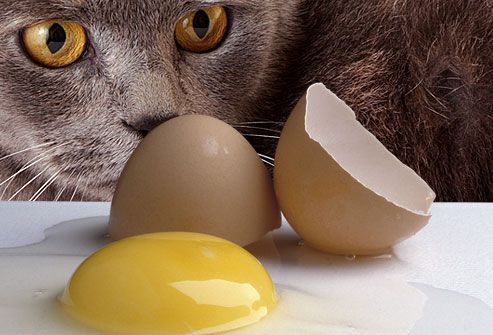
Raw Meat and Fish
Raw meat and raw fish, like raw eggs, can contain bacteria that cause food poisoning. In addition, an enzyme in raw fish destroys thiamine, which is an essential B vitamin for your cat. A lack of thiamine can cause serious neurological problems and lead to convulsions and coma.
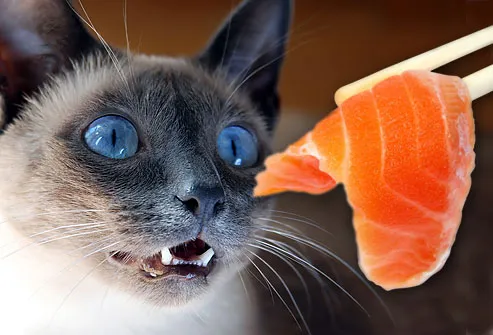
Dog Food
An occasional bite of dog food won't hurt your cat. But dog food is not a substitute for cat food. They do have many of the same ingredients. But cat food is specially formulated for a cat's needs, which include more protein as well as certain vitamins and fatty acids. A steady diet of dog food can cause your cat to be severely malnourished.
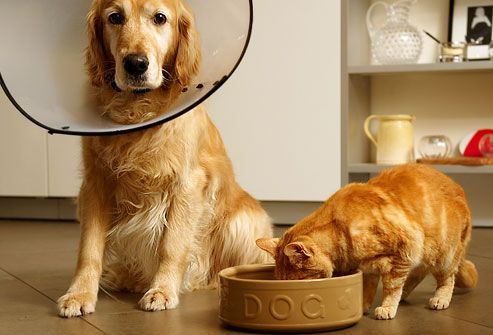
Liver
Liver can be healthy for a cat if the cat doesn't get too much. But eating too much liver can cause vitamin A toxicity. This is a serious condition that can affect your cat's bones. Symptoms include deformed bones, bone growths on the elbows and spine, and osteoporosis. Vitamin A toxicity can also cause death.
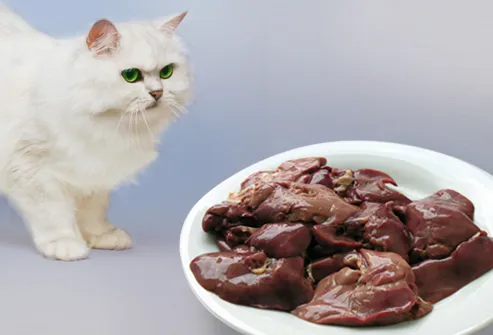
Sugary Foods and Drinks
Too much sugar can do the same thing to cats that it does to humans. It can lead to obesity, dental problems, and even diabetes.
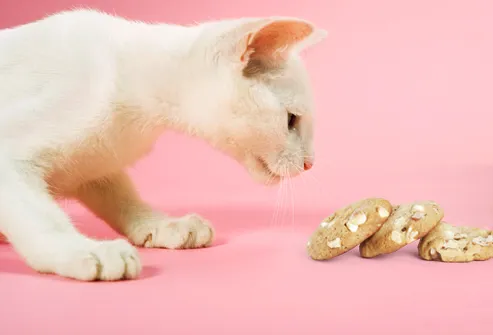
Yeast Dough
Before it's baked, bread dough needs to rise. And, that's exactly what it would do in your cat's stomach if your cat ate it. As it swells inside, the dough can stretch the abdomen and cause severe pain. In addition, when the yeast ferments the dough to make it rise, it produces alcohol that can lead to alcohol poisoning.
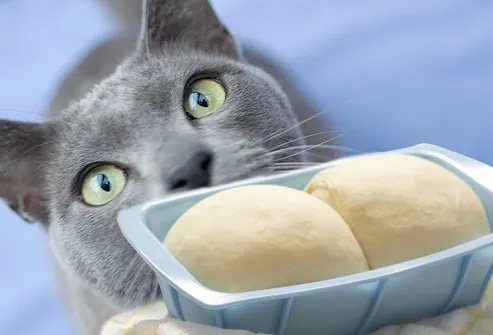
Your Medicine
Reacting to a drug commonly prescribed for humans is one of the most common causes of poisoning in cats. Just as you would do for your children, put all medicines where your cat can't get to them. And, never give your cat any over-the-counter medicine unless advised to do so by your vet. Ingredients such as acetaminophen or ibuprofen are common in pain relievers and cold medicine. And, they can be deadly for your cat.

Kitchen Pantry: No Cats Allowed
Many other items commonly found on kitchen shelves can harm your cat. For instance, baking powder and baking soda are both highly toxic. So are nutmeg and other spices. Keeping food items where your cat can't get to them and keeping pantry and cupboard doors closed will help protect your cat from serious food-related illness.
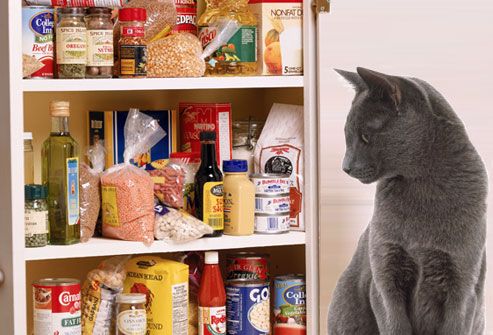
If Your Cat Eats What It Shouldn't
No matter how cautious you are, it's possible your cat can find and swallow what it shouldn't. It's a smart idea to always keep the number of your local vet, the closest emergency clinic, and the ASPCA Animal Poison Control Center -- (888) 426-4435 -- where you know you can find it in an emergency. And, if you think your cat has consumed something that's toxic, call for emergency help at once.
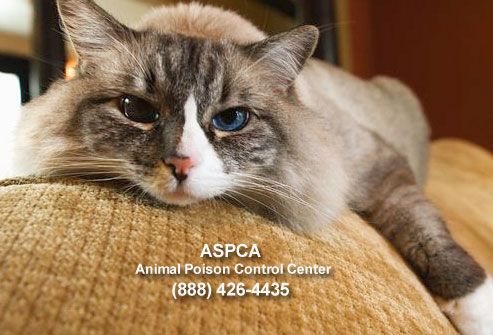
What Cats Can Eat
Cats are carnivores, and need meat. Talking with your vet about the cat food you provide and following the directions on the label will help ensure your cat's diet is balanced and your cat stays healthy. An occasional taste of cooked boneless beef or brown rice can be an OK treat. But it's best to keep it small and infrequent.
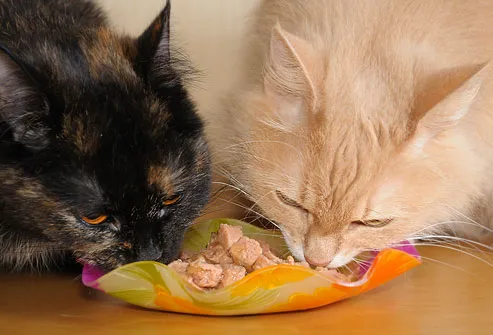






0 nhận xét:
Đăng nhận xét